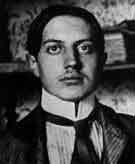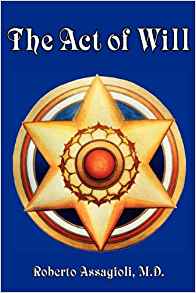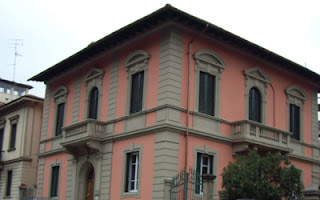Harsh imprisonment sparked new psychiatric theories
Roberto Assagioli, the pioneering psychiatrist who founded
the science of psychosynthesis, died on this day in 1974 in Capolona in the
province of Arezzo in Tuscany.
 |
| Roberto Assagioli was the pioneer of a holistic approach to psychiatry |
His innovative psychological movement, which emphasised the
possibility of progressive integration, or synthesis, of the personality, aimed
at finding inner peace and harmony. It is still admired and is being developed by
therapists and psychologists today.
Assagioli explained his ideas in four books - two published posthumously - and the many
different pamphlets he wrote during his lifetime.
In 1940 the psychiatrist had to spend 27 days in solitary
confinement in prison, having been arrested by Mussolini’s Fascist government
for praying for peace and encouraging others to join him. He later claimed this
experience helped him make his psychological discovery.
Assagioli was born under the name of Roberto Marco Grego in
1888 into a middle-class, Jewish background in Venice.
His father died when he was two years old and his mother
remarried quickly to Alessandro Emanuele Assagioli. As a young child Roberto
was exposed to art and music and learnt many different languages – creative inspiration
which is believed to have helped his work in psychosynthesis.
When he was 18, Assagioli began to travel, and while in
Russia he learnt about social systems and politics.
 |
| Assagioli as a young man |
Assagioli received his first degree in neurology and
psychiatry at Istituto di Studii Superiori Pratici di Perfezionamento in
Florence in 1910. Then he began writing articles that criticised
psychoanalysis, arguing for a more holistic approach.
After training in psychiatry at a hospital in Zurich, he
opened the first psychoanalytic hospital in Italy, but felt unsatisfied with
this field of psychiatry.
He married Nella Ciapetti in 1922 and they had a son,
Ilario.
After being released from his solitary cell in Regina Coeli
prison in 1940, he returned to his family, but later in the war their farm was
destroyed and they had to go into hiding in the mountains above Arezzo.
Their son, Ilario, died at the age of 28 from lung disease,
thought to have been caused by the harsh living conditions he experienced
during the war.
 |
| The cover of Assagioli's second book, published a year before he died. |
After the war, Assagioli returned to his work on
psychosynthesis, preferring a spiritual and holistic approach to psychology.
He was inspired by Freud and Jung and felt that love, wisdom
and creativity were important components in psychoanalysis.
Assagioli corresponded with Freud but they never had the
chance to meet.
He gave much of the credit for his inspiration for psychosynthesis
to his solitary confinement for nearly four weeks in 1940.
He said he used his time in prison to exercise his mental
will by meditating daily because he had realised he was able to change his
punishment into an opportunity to investigate his inner self.
Assagioli died on August 23, 1974 at the age of 86 from
unknown causes.
Since his death, psychosynthesis has continued to be
embraced as a comprehensive psychological approach for finding inner peace and
harmony.
 |
| The Institute of Psychosynthesis has its headquarters on the northern outside of Florence |
Travel tip:
Roberto Assagioli’s former home in Via San Domenico, on the
northern outskirts of Florence on the way to Fiesole, is now the headquarters of the Institute of
Psychosynthesis, where conferences about the science are regularly held.
Although Assagioli wrote just two books about his ideas, the Institute houses a
rich archive of documents that includes a large quantity of hand-written
material by him.
 |
| The bridge across the Arno into Capolona |
Travel tip
Capolona, where Assagioli was living when he died, is a
small town near Arezzo in Tuscany, located on the right bank of the River Arno.
It is referred to as the gateway to the Casentino area, which is rich in
castles, churches and old bridges. A few kilometres away to the north lies
Caprese Michelangelo, the small village where the great artist Michelangelo was
born.